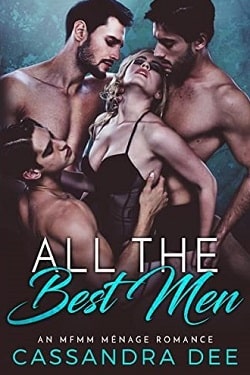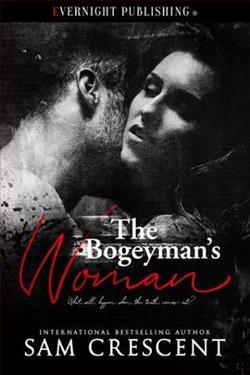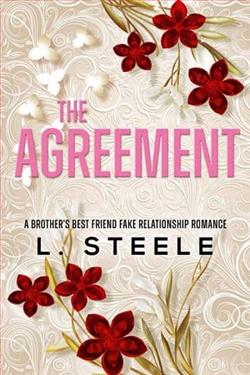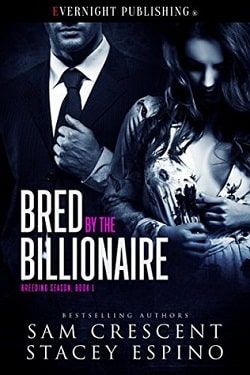Page 16 of The Trouble with Anna
As she led Lord Ramsay down the gloomy hall, Anna was suddenly conscious of Chatham’s mediocre paintings, the heavy, ugly tapestries. Pride stiffened her spine as they reached the library, her favorite room. She opened the door and afternoon light from three large windows cascaded down over the towering shelves tobounce off the gleaming tables and mingle with the comforting smell of old parchment and leather. Ramsay took it all in—the rows of thick atlases, the pretty gold-tipped books of French philosophy, the medieval folios kept in careful shadow, and, against the longest wall, volume after volume of Greek and Roman history. Even through his anger, his eyes sought out titles on the shelves, as if looking for his favorites. Was he a reader?
Oh, help!She didn’t need reasons tolikethe man.
His voice cut through her thoughts. “Tacitus? Cicero? Pliny?”
“My grandfather was interested in the Roman Empire, particularly military history.”
“I never took him for a scholar.”
Anna shrugged. “Books were one of his great loves. I don’t suppose many people knew. He wasn’t one to seek out like-minded companions.”
“No, I don’t suppose he was.”
Sharp little tears pricked behind Anna’s eyes. All those thousand afternoons poring over books with her grandfather—surelyshehad been his companion. Surely she hadn’t imagined his creaky, gruff affection.
She gave a brisk shake of her head and lowered herself into one of the chairs by the window. “Please, have a seat.” It was the strangest sensation to sit so close to Ramsay, their knees almost touching. “My lord, you keep hunting me down. What could possibly be so urgent?”
His face hardened to stone as he handed her the newspaper. “This.”
Anna glanced down and shot to her feet. “Good god, what’s this? What have you done?”
“What haveIdone?” Ramsay stood. “It’s what yourgrandfatherdid, I assume. Unless you—”
“Icertainly didn’t!”
“It doesn’t matter.” Ramsay began to pace wildly. “We’re left to deal with the consequences, regardless.”
“All right. I suppose we can simply issue a retraction—”
Ramsay whirled toward her. “Are you mad?”
“No. I’m thinking up solutions instead of roaring around like a wounded bear.”
“There’s only one solution, you must see that.” He paused and braced himself, and when he spoke it as if he were carving words on his own tombstone. “Lady Anna, I’m prepared to do the honorable thing. Would you do me the pleasure of becoming my wife?”
Anna blinked up at him. Were her ears ringing? Did the library have a strange new echo? Because the wordsmy wife, my wifekept crashing around and diving at her head.
“Excuse me?” she said at last.
Ramsay’s jaw spasmed. “Lady Anna, I’m asking you to marry me.”
Heat seared through Anna until her whole body burned with humiliation. She’d never thought to inspire poetry, but she’d also never expected an offer from a man who looked like he’d rather face the guillotine.
“God, no!” she shouted. “Anything but that!”
Julian’s head was throbbing and his shoulders were stiff with tension, and now deep grooves of confusion creased his forehead. “What?”
“No,” Lady Anna repeated slowly, as if he were thick. “I will not do you the dubious pleasure of becoming your wife.”
Frustration coiled around him and started to squeeze, like a constrictor snake. He wrestled it down and fought for reason. “Youdo realize that if we don’t marry after that announcement, there’s no chance you’ll ever marry. You’ll have no children, no family, no security at all if I don’t do the honorable thing and—”
“What aboutmyhonor? If I marry you, I’m no better than a thief! You must see how ludicrous this is!”
The old anger flared, hot and blinding. “There isnothingludicrous about a guardian protecting his ward.”
“A week ago you barely knew my name!”
His patience snapped. “Christ! This is difficult enough as it is. At the very least you could be grate—”















